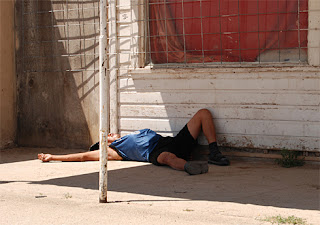The 15-day United States government gridlock began with the October 1st rollout of the Patient Protection and Affordable Care Act – better known as Obamacare - but it appears that this battle has been eclipsed by the rapidly approaching debt ceiling deadline. If the US defaults on Thursday, we will lose our financial credibility in the foreign markets, and the result will be global economic uncertainty.
A conflict between Republicans and Democrats is not new. During this administration alone, we have had a sequester, a fiscal cliff, and a near default in 2011. Personally, I am weary of the skirmishes and onslaught of disparaging remarks against our President. I cannot reconcile a Republican’s fear-based logic with my innate moral intuition. I have had a liberal mindset – although raised in a conservative Republican household – as long as I can remember. In 1968, at age fourteen, I walked three miles to hear Senator Robert F. Kennedy speak.
Are we pre-disposed to become a Democrat or Republican? Are our political differences really about brain biology?
Nigel Barber, Ph.D., Biopsychologist, author, and blogger at Psychology Today, wrote, “Why Liberal Hearts Bleed and Conservatives Don’t.” I found it very interesting and want to share an excerpt with you. His article (below) gave credibility to my previously unfounded belief that human minds are indeed wired differently, and this includes our political views.
The Conservative Worldview
Conservatives see the world as a challenging place in which there is always someone else who is ready to steal your lunch. Confronted by a potentially hostile environment, the best course is to take precautions and to ensure your own well-being and that of your family.
The threatening world view illuminates the conservative take on specific political issues in fairly obvious ways.
· Conservatives are pro-gun because they want to be able to defend themselves against criminal threats of any type.
· They are mostly religious because religious rituals foster feelings of safety in a dangerous world such that the most dangerous countries in the world are also the most religious.
· They tend to be more hostile to immigrants, foreigners, and racial or ethnic minorities and to view them as more of a threat.
· They fear attacks by other nations and therefore support a strong military and a bellicose foreign policy on the theory that a good attack is the best defense.
· Apart from military defense, where government is an asset, conservatives fear government intrusions into their lives and particularly fear having their wealth eroded by taxation.
· They are pro-family because being surrounded by close relatives is the best defense against threats that surround them.
· They oppose welfare for the poor because this encourages dependence so that the failures of a society are parasites on the successes thereby inverting the proper incentive structure.
· They admire wealth because successful people are seen as having worked hard in pursuing a moral obligation to provide for themselves and their families in a difficult and uncertain world.
The Liberal Worldview
The liberal worldview is mostly the opposite. Liberals take a more optimistic view of the world as being somewhat more benign. Government is a vehicle through which the citizens of a democracy can solve problems and improve the well-being and happiness of most people.
· Liberals feel that protection of citizens against crime is better left to police and that armed citizens are a threat to those around them.
· They are less religious than conservatives because they perceive the world around them as less threatening. Moreover, they rely more on science, and education, as a means to solve problems.
· Liberals are more welcoming to immigrants. They are less likely to view foreigners, and racial or ethnic minorities as a threat.
· They favor negotiation and consensus-building over warfare in foreign policy and do not believe in excessive military buildups that drain social spending.
· Liberals are happy to pay their taxes if they believe that the money is being used to improve the quality of life of others whether they are poor or rich. Instead of being a threat, the government reflects the will of the people.
· Liberals are less interested in family ties as a protective bubble.
· They support welfare programs for the poor because these may reduce child poverty, as well as reducing crime and social problems.
· Liberals are suspicious of wealth feeling that much of it is inherited or obtained through sharp business practices or outright corruption. They also feel that concentrating resources in the hands of the one percent impoverishes everyone else thereby undermining social trust.
Nigel Barber, 2012
Okay, Conservatives on Capitol Hill, show us that you are capable of stepping outside your restricted comfort zone, and do what is right. Your goal of “winning” is making the United States of America look foolish in the eyes of the world and jeopardizing your fellow Americans.







